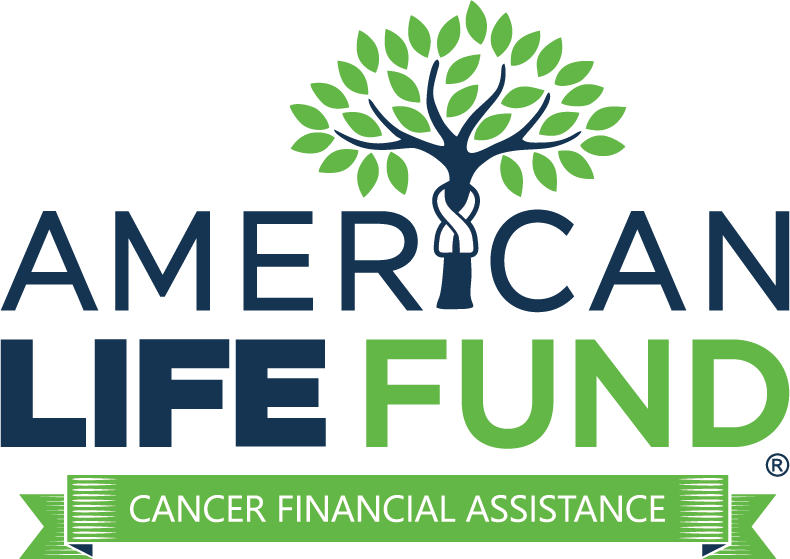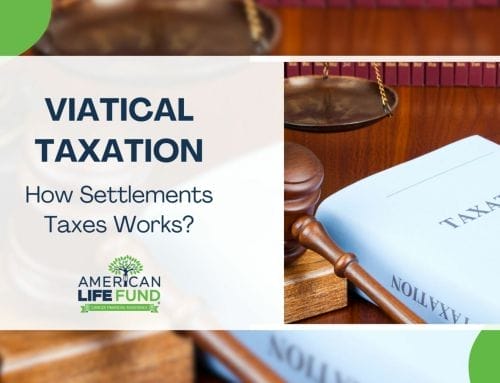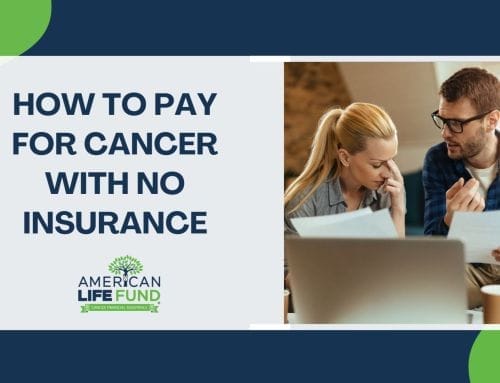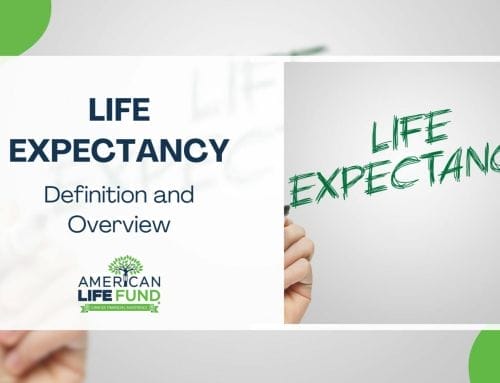Life’s unpredictability often prompts us to reassess our financial strategies and insurance plans. Whether you’re navigating changes in your life insurance needs or exploring options for a policy adjustment, this guide offers insights into your available choices. Learn about the processes, pros and cons, potential financial benefits, and alternative avenues available to you as you consider the future of your life insurance policy.
Can You Sell Your Life Insurance Policy?
There may come a time when you no longer need or want your life insurance policy.
While your life insurance may have been a financial safety net that protected your beneficiaries from financial struggles in the event of your passing, you may find that your plan no longer suits you.
If you are a Federal Employee and have been looking to sell your Federal Employee Group Life Insurance or FEGLI policy, check out our blog post How to Sell a Federal Employee Group Life Insurance Policy.
Whatever the reason you’re thinking of giving up your life insurance policy, you can do something better than just canceling it—you can sell it!

Everything You Need To Know About Selling Your Life Insurance Policy
- How Do Selling Life Insurance Policies Work?
- The Two Main Ways You Can Sell Life Insurance Policies
- Pros & Cons of Selling A Life Insurance Policy
- Selling Your Policy: Is it Worth it?
- Alternatives to Selling Your Life Insurance Policy
- FAQ About Selling Your Life Insurance Policy
How Does Selling A Life Insurance Policy Work?
A life insurance policy is an asset you own; as a policyholder, you can sell your life insurance policy for a payout.
There are two main ways of selling your life insurance policy: Life settlements and viatical settlements.
While there is some overlap between these two options, there are also some key differences, which we will detail below.
The Two Main Ways You Can Sell Your Policy
One might choose to sell their life insurance policy if they have a financial emergency, need more money for retirement, or simply don’t want to keep up the premiums.
With both life and viatical settlements, you sell your insurance policy to a third-party buyer in exchange for a lump-sum cash payment. The buyer then takes over the responsibility of paying the premiums on the policy. In return, they become the new beneficiary of the policy’s death benefit and will collect it upon your passing.
Selling Your Policy Through A Life Settlement
In general, a life settlement is for healthy seniors, those aged 75 and older, looking to cash out on their life insurance policies. There are certain eligibility requirements for life settlements, including policy age, policy minimum, etc.
The payout for a life settlement is typically more than the policy’s cash surrender value but less than the death benefit. The exact figures will depend on the policy’s premiums, the policy amount, and the policyholder’s life expectancy.. However, it is also worth noting that with a life settlement, you will have to pay taxes because they are considered income. This is not the case with viatical settlements, as you’ll learn in the next section.
Selling Your Policy Through A Viatical Settlement
Unlike life settlements, viatical settlements are designed specifically for life insurance policyholders who have a life-threatening illness, reduced life expectancy, or chronic health issues. Like with life settlements, there are certain additional eligibility requirements.
Unlike life settlements, the cash payout with a viatical settlement is tax-free , meaning you can spend it however you’d like. And who doesn’t love financial freedom?
If you qualify for a viatical settlement, you can work with a viatical settlement company to fill out a brief application that details some basic personal information, including your policy type, policy amount, , diagnosis, and stage of illness. Typically, your application can be processed in just a few business days, and you can come to a written offer agreement regarding how big of a lump-sum cash payout you can expect.
Will I Qualify To Sell My Life Insurance Policy?
If you have been diagnosed with a life-threatening illness and are looking to sell your life insurance policy, we at American Life Fund may be able to help.
If you have held your policy for two years or more and have a face-value minimum of $150,000, there’s a good chance you can cash in your life insurance policy for a generous viatical settlement.
See if you qualify for a viatical settlement.
How Does Selling My Policy Work?
When you agree to sell your life insurance policy to life settlement companies like American Life Fund, you become your policy’s viator (seller), and the life settlement company becomes the buyer.
Once you’ve reached out to a life settlement company with your intent to sell your policy, you’ll go through a verification process, review your offer, and complete the necessary paperwork.
As your policy’s viator (seller), you will receive a lump-sum cash settlement valued at more than the life insurance policy but less than the death benefit amount. Once you receive your payout, the funds are completely yours, so deciding how to spend your money is completely up to you! In other words, you can use the funds however you see fit!
The broker who has purchased your life insurance policy will then take over by paying the monthly policy premiums and will eventually be entitled to the death benefit after the viator’s (seller’s) passing.
So, how do you sell your life insurance policy? Get in contact with a reliable life settlement company like American Life Fund.

How Much Can I Get From Selling My Life Insurance Policy?
While the amount you will receive from selling your life insurance will vary depending on a few factors, including your specific policy and its amount, a general rule of thumb is that most people receive 40-70% of the policy’s face value through their viatical settlement.
What Can I Use The Money For?
The wonderful thing about selling your life insurance policy through a viatical settlement is the financial freedom it provides you.
Once your life insurance policy has been sold, and you receive your lump-sum cash payout via a viatical settlement, there are no restrictions on spending your money! While perhaps you’d like to put some of your money towards medical expenses, you can also put it towards dream vacations, living expenses, early retirement–the list goes on and on!
Selling Your Life Insurance Policy Pros & Cons
Here are some of the pros and cons of selling a life insurance policy:
The best thing about viatical settlements is that they can be used for anything you choose—there are no limitations!
Other pros of selling your life insurance policy through a viatical settlement include:
- The process is straightforward, and you’ll receive your funds quickly after starting the process usually within only a few weeks.
- Monthly premiums will become a thing of the past; paying them becomes the responsibility of the company purchasing your policy.
- The cash payouts are tax-free and non-regulated.
- You’ll receive more money than if you simply surrender your policy for its cash value.
- You can use the funds for medical costs, including treatments, care, and quality-of-life benefits. Still, the funds can ultimately be used however you’d like.
- You’ll have access to funds NOW—meaning you and your family can enjoy the funds together.
- Peace of mind! You can focus on the things that truly matter by alleviating financial stress.
When making any major financial decision, it is important to consider all potential aspects. Let’s continue to weigh the pros and cons to determine if a viatical settlement is the right choice for you.
Some potential drawbacks of a viatical settlement include that your beneficiaries will no longer receive the face value of your life insurance policy as a death benefit when you pass away. Additionally, if you have any creditors, they could make claims on your viatical settlement payout amount, so be sure to take care of any outstanding debts beforehand. Also, if you rely on public assistance, such as Food Stamps, Medicaid, etc., your viatical settlement could make you ineligible for these programs.
Is Selling Your Policy Worth It?
Depending on your needs, selling your life insurance policy through a viatical settlement can be a worthwhile choice. A huge benefit of viatical settlements over life settlements or other cash-out options is that the money from a viatical settlement contract is considered tax-free.
When a policyholder sells their policy as a life settlement (instead of a viatical), they have to pay income or estate tax on the money. Viatical settlements are free from federal income tax and other fees, so sellers receive the full offer for their policy, regardless of the type.
A viatical settlement can be a great answer for seriously ill policyholders looking to cash out now and enjoy the financial freedom they would not otherwise be entitled to if they were to keep their standard life insurance policies in place without selling. Cashing out now could mean an early retirement, time off, more time with family, the option for travel, or whatever else you desire. Once you’re ready, you can use a viatical settlement to improve your situation in any way you want.
Let’s put your money back into your hands. See if you qualify today.

Alternatives To Selling Life Insurance Policies?
In addition to selling your life insurance policy through a life settlement or a viatical settlement, there are other options. Let’s go over some of them.
Accelerated Death Benefit
An Accelerated Death Benefit (ADB) occurs when a life insurance policyholder receives a certain amount of their initial death benefit while living. Another name for ADB is “living benefits.” ADBs are usually specifically reserved for those suffering from a terminal illness and who have a life expectancy that is less than two years.
Once the amount is paid out to the policyholder, the policyholder must continue to make their monthly premium payments for the life of the settlement. It is important to note that the amount taken from the overall policy and given to the holder is deducted from the overall face value of the policy, which means that when the policyholder passes, the death benefit will be less.
A smaller death benefit isn’t practical for certain people and their families, making ADB a poor choice for some.
Borrow Against Your Policy
Borrowing against your policy is a short-term solution, which allows you access to “loaned” funds from your overall life insurance policy. It’s important to understand that these funds must be paid back over time. Interest also accrues on top of the loan amount that must be paid.
Borrowing against your policy can be risky because if the policyholder passes before the loan amount can be fully paid off, the death benefit is reduced by the amount remaining on the loan, plus any interest that has accrued.
Borrowing against your policy is only possible for those with a whole life or permanent policy, not those with a term life policy.

Surrender Your Policy
Surrendering your life insurance policy means you’re giving it up. More specifically, you agree to settle for the cash surrender value, which is less than the face value of the policy. By agreeing to surrender your policy in exchange for the cash surrender value, you’re no longer entitled to the death benefit.
When you agree to surrender your policy, a certain amount is taxable. It’s also important to remember that if you haven’t had your policy for all that long, it likely will not be worth as much as an older policy you’ve had for quite some time—this is because younger policies are usually subject to surrender fees. These are elements that discourage some from surrendering their policy.
Let Your Policy Lapse
If you stop paying your monthly premiums on your life insurance policy, it will lapse–meaning it will no longer be active. Once your policy becomes inactive, you lose all benefits that come with it, namely, the death benefit.
Policyholders who let their policy lapse usually do so either because they can no longer afford the cost of their monthly premiums, they feel they no longer need life insurance coverage, or they no longer need the death benefit.
Sometimes, reinstating your policy is possible, but not always. You are also not refunded for any of the money you invested into the policy through your monthly premiums.
Ask To Lower Your Coverage Amount
If you’re struggling to afford the cost of monthly premiums on your life insurance policy but do not want to let it lapse, lowering your coverage amount may be possible, but it depends.
Lowering your coverage amount is usually only possible for policyholders with a permanent life insurance policy, not those with a term life insurance policy.
If the company is willing to lower your monthly payment, it will come at the cost of lowering your policy’s overall face value. In doing so, your death benefit amount is reduced.
There may be other ways to lower your coverage amount. However, it depends on many factors, such as the type and life of your policy, its cash value, dividends (if applicable), etc.
1035 Exchange
A 1035 Exchange occurs when you transfer the funds from one life insurance policy to another.
If you’re hoping to transfer your life insurance policy funds from one policy to another, it’s important that you specifically utilize the 1035 Exchange process, or you risk paying income taxes on any gains from the original life insurance policy.
The decision to switch funds from one policy to another is at the policyholder’s discretion. It may or may not be appropriate for your unique situation and needs.
Frequently Asked Questions About Selling Your Life Insurance Policy?
Can You Sell Your Insurance Policy?
Because your life insurance policy is an asset you own, you can sell it to a company through a viatical settlement.
How Much Can I Earn From Selling My Life Insurance Policy?
Usually, 40-70% of the policy’s face value is paid in a viatical settlement. And remember, unlike life settlements, viatical settlements are tax-free—meaning you’re likely to receive a higher payout, since your money is not being taxed as income.
Is it Worth it to Sell Your Life Insurance Policy?
For many, the financial freedom you can receive makes selling your life insurance policy a worthwhile choice.
How Much Can You Sell a $150,000 Life Insurance Policy For?
Because viatical settlements typically pay 40-70% of the policy’s face value, if you were to cash in a $150,000 life insurance policy, you’d be looking at receiving anywhere from $60,000-$105,000 in the next few weeks.
Should I Sell My Life Insurance Policy?
If you want access to cash benefits now, selling your life insurance policy through a viatical settlement may be your best option.
What is the Cash Surrender Value of a Life Insurance Policy?
The cash surrender value is the amount your insurance company pays you if you surrender your policy before maturity. This value is typically much less than the policy’s face value.
What is the Death Benefit of a Life Insurance Policy?
The death benefit is the money your beneficiaries receive upon your passing.
What is a Life Settlement?
A life settlement involves selling your life insurance policy to a third party for a lump-sum cash payment. The buyer assumes responsibility for premium payments and becomes the new beneficiary.
What is a Viatical Settlement?
A viatical settlement is specifically designed for policyholders facing a terminal illness. It involves selling the policy to a third party for a tax-free, lump-sum cash payout, providing financial relief during health challenges.
How Can I Sell My Life Insurance Policy?
Contact a reputable life settlement company or broker to sell your life insurance policy. The process involves verification, reviewing offers, completing paperwork, and receiving a lump-sum cash settlement.
What are Accelerated Death Benefits?
Accelerated Death Benefits (ADB) allow policyholders to receive a portion of their death benefit while alive, usually due to terminal illness. However, this reduces the overall death benefit.
What is the Role of a Life Settlement Broker?
A life settlement broker facilitates the sale of your life insurance policy to potential buyers. They are crucial in connecting policyholders with suitable buyers and navigating the settlement process.
Can I Sell Term Life Insurance?
Yes, term life insurance policies can be sold through both life settlements and viatical settlements, providing a viable option for policyholders seeking financial flexibility.
Are Viatical Settlements Tax-Free?
Yes, viatical settlements are typically tax-free, providing policyholders with a lump-sum cash payout that can be used without the burden of income taxes.
What Happens to Future Premiums After Selling a Life Insurance Policy?
After selling your life insurance policy, the responsibility for paying future premiums shifts to the buyer, offering the policyholder relief from ongoing financial commitments.





